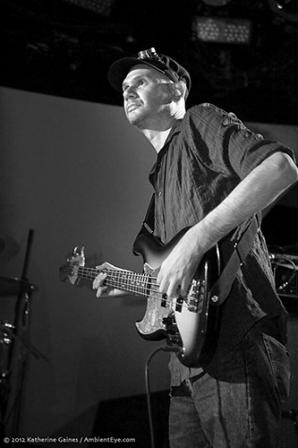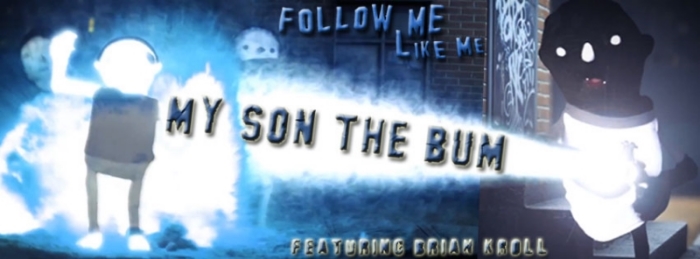Dan Volohov recently got the chance to speak with Howie Beno – producer and musician. In the interview for “Punk Globe” magazine, we spoke with Howie about recent releases and background, about work at Chicago Trax Studios and Chicago musical scene, about the recording on “Psalm 69” and his first experiences with Skatenigs. About his workwith Monster Voodoo Machine and Screw. Hope you’d enjoy!
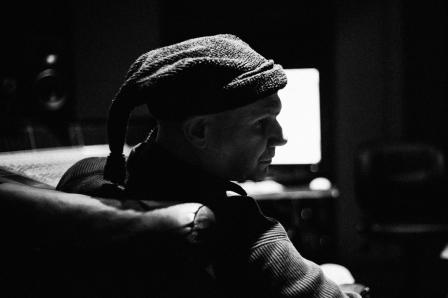
Punk Globe: One of the recent recordings was a track you recorded with Debbie Harry, Mike Greko, Sharon Needles, Amanda Lepore, & Peppermint. Could you please tell me a little bit about it ?
Howie: The song,“Lift Em Up”, was originally composed to be a part of the gay pride celebrations for here, NYC, in June 2019. We actually started working on the song back in November of 2018. All told, there ended up being 80 different versions of the instrumental track before we even started to think about recording vocals. EIGHTY separate versions from November all the way until May. The song is a track written by an artist I’ve been working with, Mike Greko. He’s the primary composer, author and main singer. Mike and I worked on it for six months in order to get the feel and direction right. Sharon Needles (from RuPaul's Drag Race) also helped with co-writing the lyrics. Debbie Harry from Blondie had been hearing references pretty much all the way along and was always committed to being a part of the project. All told, by the end of the mixing, it became sort of an ensemble of 7-8 people. Mike’s basic concept was to get a wide cross section of the LGBTQ community involved as much as possible so when it came out, the entire community would be represented. The song, which was I believe was released and supported though Lady Gaga’s foundation, got released in time later on in June for the events. It took a lot tweaking and a lot of care and effort. For example, the guitars got recorded by Andee Blacksugar from KMFDM in November 2018 and then we had to re-record the guitars in March 2019 because the track changed so much! The parts he had played in November were no longer applicable to where the direction had gone.
Punk Globe: Who were the bands and songs that you discovered for the first time and what struck you in that music?
Howie: I’ve got a lot of different influences and heroes. Going back, and this is gonna date me in terms of how old I am (laughs), some of the initial sounds I started listening to were early and mid-80’s Depeche Mode. They had a massive influence on me from “Construction Time Again” to “Songs of Faith and Devotion” era. Another overwhelming influence on me was the early solo work of Peter Gabriel. Right after he’d left Genesis, he put out a series of self-titled solo-albums before “So” came out in 1985. I thought that on those records, the sound and aesthetic truly connected to me emotionally and were the most informative to me as a budding songwriter, which is where my focus really was.
Punk Globe: You graduated from the Conservatory of Music at Wheaton College, but most of your work is connected with production and producing. Why did you choose the production side of working instead of working primarily as composer?
Howie: Life is a very,very,very funny thing…is it not ? To that end, I don’t find the headspaces of either facet of the field to be in any way mutually exclusive- Quite the opposite in fact. I attended the Conservatory to study composition and that’s what I studied my entire time there. I studied orchestration, style analysis, counterpoint and SATB voice leading, songwriting- the basic composition tools. When I was first asked to help on records, it was on the production side as programmer for Ministry. Even still, I always thought I’d going to be a songwriter as a natural evolution. What ended up happening is , over time, while I did a lot of songwriting in tandem, I found that remixing, producing and mixing records sort of became my natural calling. I just naturally gravitated towards that. It was a sort of a life-bending-it’s-wheel-on-to-me as opposed to me-bending-my-wheel-on-to-life ( laughs ).
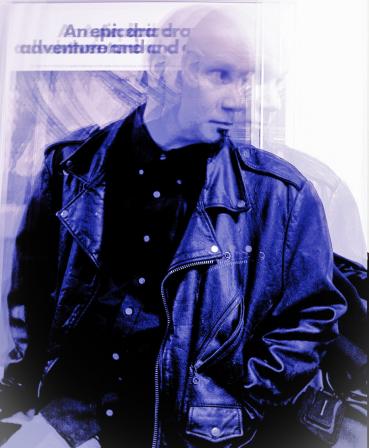
Punk Globe: At the very beginning of your career you got to work at Chicago Trax Studios, doing there a lot of work for the Wax Trax Record label. How were you first introduced into that?
Howie: Early on, when I was in college I met another gentlemen named Jeff Newell. We ran in similar circles in college and he graduated the year ahead of me. We got to chatting and he said: “I need songwriters! I need songs to record for my degree!” and I was like: “That’s funny! Because, I need to record songs for my degree! Maybe we can help each other out?” We clicked and started working together immediately, sneaking into buildings with keys late at night when nobody was around. We would go from midnight until 6 o’clock in the morning and grab/ steal gear from all over the place, rewiring the units with crazy configurations in prehistoric caveman-like ad-hoc makeshift studio conditions. Then, at 6 o’clock in the morning, we’d return everything back to normal. That’s how we sort of formed our bond. Jeff left school before me and landed an assistant engineering job at Chicago Trax. It was a very relaxed place to work. Funnily enough, he showed up on his first day on a suit and tie. And everyone was like: “What are you doing ? Lose that…” ( laughs ). Within the first three days, Al [Jourgensen] was in the studio working with Skinny Puppy on what would become the “Rabies” album and Jeff was in the room…Al was just sort of “Here, kid! You’re on the hot seat now! Go for it!”. So from that day forward Jeff became Al and Paul’s engineer for the “Hypo Luxa and Hermes Pan” production duo. He was a still close friend of mine and invited me to sit in on the mix sessions of the records he was making at the time- Lard and the Ministry “A Mind Is A Terrible Thing To Taste” mix sessions. I was sort of a fly on a wall observing everything and soaking it in. When it came time to record what would become to be called “Psalm 69”, Al and Paul (Barker) had parted ways with their previous programmer. and Jeff suggested that I get the job. I guess i ended up sort of «auditioning» for the job at an old abandoned Playboy Mansion in Lake Geneva, Wisconsin in the dead of winter. For my “audition” I was fed acid for seven days straight with Jello Biafra constantly getting my face just to fuck with me. I guess the idea was if I could program for those seven days with walls melting around me…then I was crazy enough to get the job ( laughs ). So then they decided , because of technical issues, to return to Chicago Trax where the previous several Ministry albums had been crafted . About two weeks later I got a call. I think, maybe it was Paul: “We’re going into Trax. We want to you come with us. We want to finish the album at Trax. It’s gonna take a couple of months”. And 18 months later the album was done. Kind of.
Punk Globe: Music from Chicago always has been closely associated with industrial music. What are your thoughts of this scene and why Industrial was so popular?
Howie: Chicago is a very working class city…in very broad shoulders kind of its own affair. Especially back in the 80’s. It’s didn’t resemble the town as it is today, especially, in 80’s. Gangs, drugs and even more corruption. Chicago’s always been a working men’s town. I think what ended up happening with all those factories and with all that industry things naturally gravitated towards the steel mills, iron works and the slaughterhouses. Of course, the fact that Jim [Nash] and Dannie [Flesher] relocating from Denver to Chicago to foster the new freak scene unfolding there was the perfect storm so to speak. There were Medusa’s dance club and the Cabaret Metro that were primarily supporting the upcoming aesthetic and nurturing its growth .
Punk Globe: At that point you started doing programming working with such artists as Skatenigs. I’ve heard now you’re working on remixing a Skatenigs song, the first single, “Chemical Imbalance” to celebrate the anniversary this year. How does it feel for you to get back to a project you started from ?
Howie: Quite a mind blowing feeling. I got a call from Phildo, when I was in Ireland, on tour this summer with a band I’m producing called “Silver Relics”. Phildo said something like: “There’s going to be a 30’th anniversary of the release of “Stupid People Shouldn't Breed” which was actually my first experience before even working on “Psalm 69”! I was helping Jeff record that album. In my response to Phildo I said: “Are you kidding me ? Thirty years ?!!!! I can’t believe that!”. He said: “Not only that. But we are planning to re-release the album and I’d love you to do a remix!” I was so excited to hear that. For me, it’s kind of like coming full circle. I’m not saying that this is my last record, of course, but I’d say given the historical perspective it’s a great milestone. Now to be asked to do a remix? Certainly an honor and I jumped at the opportunity. I sent my completed remix of the song to them a couple of weeks ago and by all accounts everyone’s thrilled. Look for it when it comes out!
Punk Globe: At that period you joined Ministry working on legendary “Psalm 69” – could you please tell me a little bit about this songs and your work on this record ?
Howie: I wanna clarify at first. I only collaborated so much as to help facilitate when and where I could offer. As a kid at that time and extremely green, I learned SO MUCH from working with that production team. That was basically my schooling. I was excited to be in the room. My primary focus was working on programming, overseeing editing the sequencing of the songs and editing the mixes or elements, sometimes manipulating the samples, sometimes mapping them up on a keyboard for Al and Paul to do their thing while facilitating what it was – their vision for that record. It was an interesting time in music production history. ProTools hadn’t been invented yet, there was something called “SoundTools” before that, which I fortunately had to learn and pick up so my initial involvement with that was basically doing 2 track stereo digital editing. A lot of times mix would have been done and then we’d go to Al’s loft and sit there for days just going take after take and stringing stuff together. My involvement on that record was primarily manipulating sounds, sequencing on the original Mac IIcx computer and doing digital editing tasks on sound tools.
Punk Globe: After that, mass media started to associate you with industrial music. It’s quite understandable. with “Psalm 69” you helped widen the scope of the sound. But speaking in terms of your later work…You’ve been working with Screw and Monster Voodoo Machine with Mary’s Window and Lard. What was the most interesting from professional point of view about your work with these artists ?
Howie: What ended up happening, once “Critter” [Jeff Newell] left LuxaPan’s employ, he invited me to come along and form a production company with him. We based ourselves out of Chicago Trax, calling ourselves “Grace Productions”. One of the first records we did together was the Screw record ,“Dusted”. That was a phenomenal experience. I did a little work with them on their first, previous record, “Burning In Water, Drowning In Flame”. When it came time for them to make another one, we got the green light from Metal Blade Records to go ahead and make a second one. To me, it’s one of the classic Screw records. I’m really over the moon on how the final outcome of the efforts Jeff and I did on that ended up turning out. As for Monster Voodoo Machine, we had some friends, mutual friends at RCA, that suggested we do a text remix for them for a song called “Get on with it”, which came out on “State Voodoo / State Control”. Its the EP that came out before “Suffer System”. The band and label liked the strength of the remix so much that they put us in contention to make what would become “Suffer System”. It had all power of RCA behind it. Such an amazing experience making this record! So many influences packed into one! I’m really humbled by the fact that the album ended up winning a Juno award, which is kind of like the Canadian Grammy. Jeff and I were able to make a really solid record from the brilliant songs we were handed to work from.
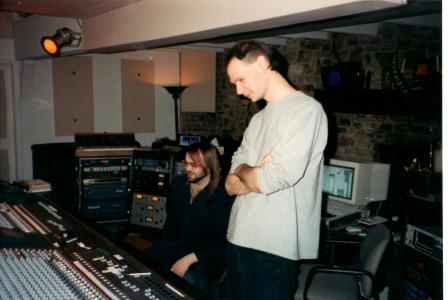
Punk Globe: Over the years, you’ve been working with very different artists and genres- from Grace Jones to The Prodigals, even artists like Hey Monday, for example. You started getting from being a “heavy metal” producer to working with different artists. At that period you moved to New York. Could you please tell me a little bit about that period of your career ?
Howie: What ended up happening is our manager at that time called me up and said: “Hey, my fiancé is a singer and can you write songs for her ?” So I started writing songs for her because my manager asked me to. Those songs ended up becoming a part of a project I co-founded with a woman named Stella Katsoudas [Stella Soleil] called Sister Soleil. Sister Soleil was very electronic based very deliberately and consciously. At that time, Stella would come up to my tiny studio apartment in Chicago where I had a little upright piano. She’d sing at the piano and I’d sit there and bang out stuff - chord changes and weird arpeggiated patterns. That’s how we wrote the songs. Indeed a very organic, non-electronic way to write the material. After that, we added the synths and sampling in the studio. Eventually, Sister Soleil got signed to Universal and then things kind of really took off. The project’s intents were much more in a pop-direction then any of the industrial stuff I’ve done before. So (pun intended) we made the record at Real World, Peter Gabriel’s studio in Bath UK which was a really insane blessing. What ended up happening is, because it was Universal’s supposed priority at the moment, I was able to sign a publishing deal based on the strength of my songwriting interest on the album. This was back in late 90’s, when the music industry was doing really stupid deals, just basically printing their own money back then. We didn’t know that within three years time the entire industry would collapse. Nobody did. But at that time, early 1998, I was fortunate to sign a publishing deal. Based on the strength of that, once the record was done I faced a decision. I could go back to Chicago or I could move to New York. And I thought: “I wanna to make a change and I wanna test the waters there, in New York.” Here I am 20 years later, still testing the waters! Another project we didn’t mention that I’m super proud to be a part of and continue to be a part of is the Black Asteroid project, which is the outlet for an artist named Bryan Black. That’s how Depeche Mode came into the conversation! Imagine getting an opportunity to help remix a song by my childhood heroes? Bryan came to me one day and said: “Hey! I landed a remix for Depeche Mode’s new single! Do you wanna work on that ?” and I said: “Hell Yeah!” (laughs) It’s a series of various different circumstances. Bryan lives here in New York and we’ve been working together for quite a few years now.
Punk Globe: Lots of people recognize Howie Beno as an engineer who also remixes. In these cases, in what way your methods differ from that you use working with artists in studio as producer ?
Howie: It’s a very different headspace! There’s creativity on both sides of the conversation. When it comes to production – it’s more about what’s important for a song- how to craft a song. Additionally you have to get the right takes and manipulate them in such way that’s interesting to the listener. When it comes to remixes, to a certain extent, it’s even more creative. Now you’re working with song that’s done. There’s already a final product, a previous production in play and what you want to do is reinvent the wheel - try to re-think what would sound interesting with different window dressings. So “Ok!”, let’s strip away the production that was done on the original track while keeping the element that are integral to the “idea”. Now, lets re- imagine all the window dressing around that germ of a concept. To a certain degree they’re both production issues, except that on the record production side, you’re crafting the original statement of the “idea” whereas on the remix side you’re kind of reverse engineering and overhauling to a larger degree.
Punk Globe: Can you say that in your producer’s work you have some sort of universal approach that fits for every artists you’re working with or it’s always searching and doing your very best ?
Howie: Everyone has their methodology, their own particular way of doing things that they’d developed over time. But when it comes to artists individually – I’m a fervent believer every artist is different. Every approach needs to be different. The challenges and gifts from “Artist One” to “Artist Two” and “Artist Three” are completely separate issues. So I don’t have a blueprint in terms of how I approach a production. That’s probably how I’ve been able to get inside a wide range of material. I think, music is music, a universal language. How the material gets produced and presented is up to the individual project. I try to be extremely flexible in terms of what the content dictates from “Project One” to “Project Two” to “Project Three”. That being said, of course, I have my own way of doing things that I rely on. I think it’s valid and I think it’s a little bit of both.
Punk Globe: In your discography, there are quite a lot of releases where you used to work as vocal engineer. Could you please tell me a little bit about the recording of vocals especially, is there some sort of approach that characterizes your work ?
Howie: I was fortunate to be introduced to some other producers here in NYC. When these producers, who were working on their own records, needed an engineer I sometimes got a call and was sort of hired\freelance to come in and say: “I can help you do the session!”. Under the circumstances, I was fortunate to “drive the bus” for a lot of really interesting people- the likes of Tom Jones or Dionne Warwick or Donny Osmond, etc. These are strange and wonderful and weird opportunities in terms of vocal engineering for which I’m forever grateful. As far as my style is concerned, I’m not aware of one particularly. Maybe singers have a certain affinity working with me because I can speak in some terms that relate- communicate with them better then someone who doesn’t have classical musical background may not be able to? Maybe that’s part of my strength when it comes to vocal engineering? Maybe that’s not it at all. Most likely the latter.
Punk Globe: One of your recent collaborations is on the EP “Codex Du” by Razorhouse. This is interesting because you took part in this project not just as producer and mixing engineer, but as musician as well. Is it hard for you to get back to playing on records ?
Howie: It’s a muscle that I love to exercise. Honestly, in terms of crediting, there may be a few more records I played on that people maybe don’t know about. ;) In some capacity, I’ve always sort of played on the records I’m helping to make all along- whether it’s on keys, bass or programming new part ideas.
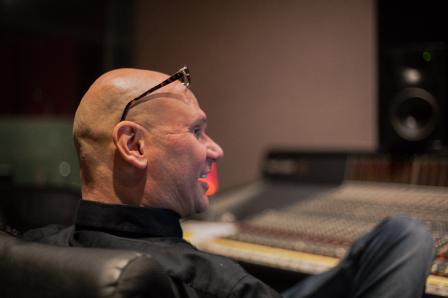
Punk Globe: Over the years you did a lot of mixing and remixing work. So let me ask you about difference of your work in these cases, from professional point of view. What helps you find your “This is it!” in both of these cases, and in what way these cases are different ?
Howie: That’s an interesting question! What I respond to is musicality. I think it’s in execution of the idea. When something feels right to me, then that’s the point at which I think we got something to work with. Even in terms of remixing, when I try approach “A”, approach “B”, approach “C”, and so on, what I do is throw 30 things up against the wall. Then turn the computer off and come back the next day and listen each one individually. And It would be like: “Did I do anything worth of any value that speaks to me ?” If I think a part can be of any value whatsoever and find interesting I’ll keep it on hand. Usually 80-90% is trash, but if you deal with 10 to 20% that’s actually ok, then they give you at least a starting point of view. I guess that’s what I’m getting – it’s about having a point of view. Going more about placement to a certain framework and being consistent aesthetically to this framework. That, to me, is the musical question to quote Charles Ives.


